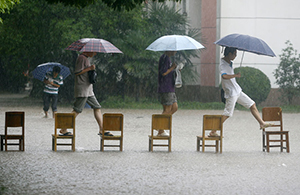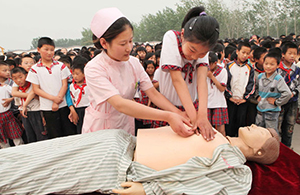Racial dilemma in the US
(China Daily) Updated: 2016-07-11 07:58Five white police officers were killed and seven other people were wounded in an attack by a gunman during a protest rally in Dallas, the United States, against police brutality toward African-Americans.
The suspect, who was killed by police, was 25-year-old Micah Johnson, an African-American, who was cited by police as saying he wanted to kill white people, especially white police officers.
A series of cases in the US in recent years involving white police officers fatally shooting black men has escalated tensions between African-Americans and white society. The fatal police shootings of two black men, Philando Castile in Minnesota and Alton Sterling in Louisiana, had prompted Friday's protest march.
There is long-standing mutual mistrust between African-Americans and the police. The bad security environment in communities mostly inhabited by black people, the high crime rates and the prevalence of guns usually cause police to feel their personal safety is endangered and they often overreact in an "emergency".
Any excessive force, however, only exacerbates the sense among African-Americans of police bias against them. And this has been further intensified by the judicial rulings in favor of police officers in previous police shootings of black men.
Friday's deadly shooting is an extreme case, but it does reflect the widespread anger among African-Americans toward the "unfair treatment" they receive, and the lack of judicial channels for them to appeal any "unfair treatment".
However, the Dallas shooting may entrench white officers' belief that they should be on high alert against African-Americans, and they may be even quicker to feel their personal safety is threatened and resort to extreme measures.
Such a security dilemma between white police and African-Americans in the US is not just a result of the gun culture in the US, but also the deep-rooted racial prejudice and judicial injustice in the US.












